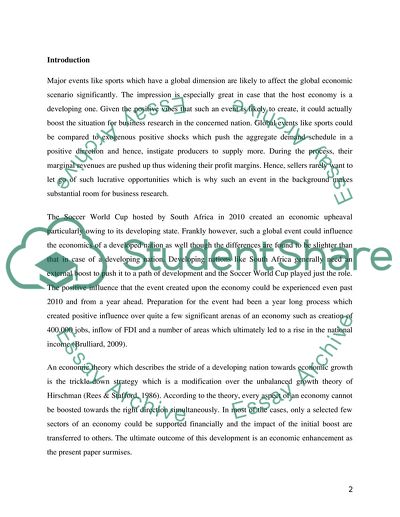Cite this document
(“Economic Impact on South Africa post Soccer World Cup: Research Essay”, n.d.)
Retrieved from https://studentshare.org/macro-microeconomics/1575547-economic-impact-on-south-africa-post-soccer-world-cup-research-proposal
Retrieved from https://studentshare.org/macro-microeconomics/1575547-economic-impact-on-south-africa-post-soccer-world-cup-research-proposal
(Economic Impact on South Africa Post Soccer World Cup: Research Essay)
https://studentshare.org/macro-microeconomics/1575547-economic-impact-on-south-africa-post-soccer-world-cup-research-proposal.
https://studentshare.org/macro-microeconomics/1575547-economic-impact-on-south-africa-post-soccer-world-cup-research-proposal.
“Economic Impact on South Africa Post Soccer World Cup: Research Essay”, n.d. https://studentshare.org/macro-microeconomics/1575547-economic-impact-on-south-africa-post-soccer-world-cup-research-proposal.


